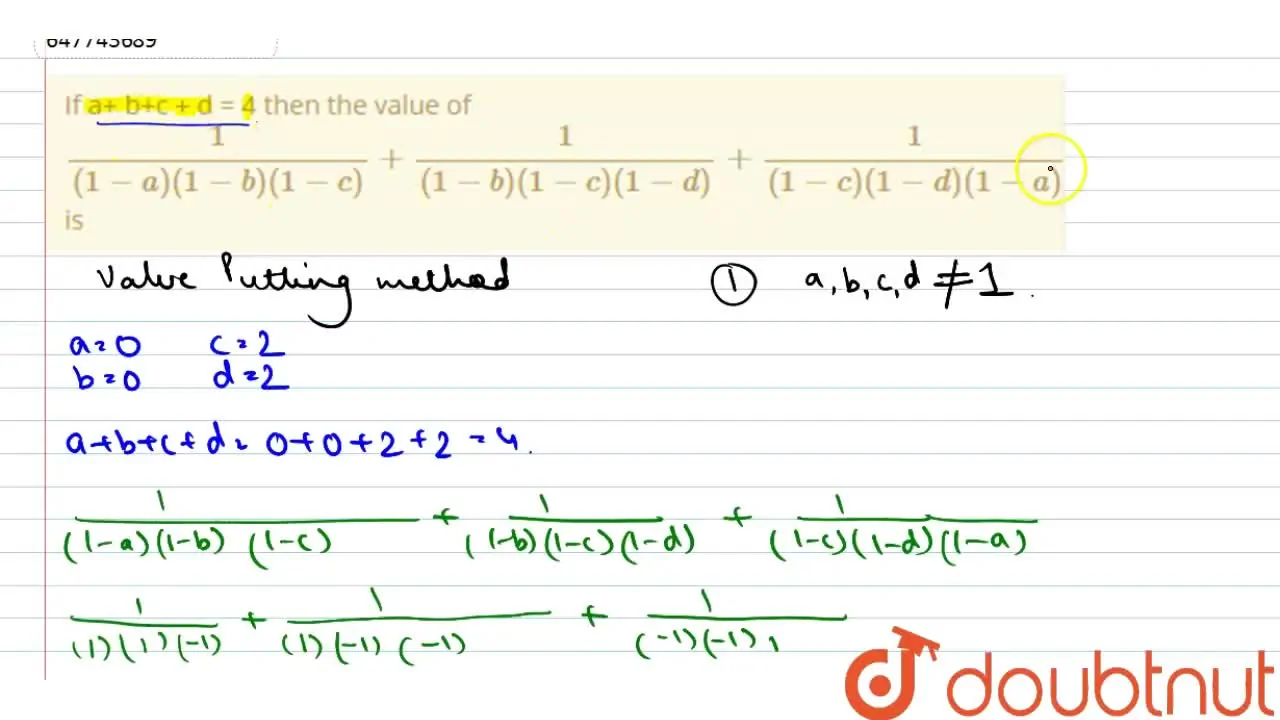If a+ b+c + d = 4 then the value of
1(1−a)(1−b)(1−c)+1(1−b)(1−c)(1−d)+1(1−c)(1−d)(1−a)+1(1−d)(1−a)(1−b) is
0
1
4
1+ abcd
The correct Answer is:A
Step by step video, text & image solution for If a+ b+c + d = 4 then the value of 1/((1-a) (1-b) (1-c)) + 1/((1-b) (1-c) (1-d)) + 1/((1-c)(1-d)(1-a)) + 1/((1-d)(1-a) (1-b)) is by Maths experts to help you in doubts & scoring excellent marks in Class 14 exams.
Similar Questions
If a + b + c + d = 4 , the find the value of 1(1−a)(1−b)(1−c)+1(1−b)(1−c)(1−d)+1(1−c)(1−d)(1−a)+1(1−d)(1−a)(1−b)
View SolutionIf a + b + c + d = 4 , the find the value of 1(1−a)(1−b)(1−c)+1(1−b)(1−c)(1−d)+1(1−c)(1−d)(1−a)+1(1−d)(1−a)(1−b)
View SolutionIf a + b + c + d = 1 , then the maximum value of
(1+a)(1+b)(1+c)(1+d) isView SolutionIf a+b=2c , then the value of aa−c+bb−c is 12 (b) 1 (c) 2 (d) 3
View SolutionIf a,b,c are in H.P., then the value of
(1b+1c−1a)(1c+1a−1b) isView SolutionIf a1−a+b1−b+c1−c=1. then the value of 11−a+11−b+11−c is
View SolutionIf a,b,c are in H.P. tgen the value of (1b+1c−1a)(1c+1a−1b)
View SolutionIf a=bc and c=a−b , then the value of a is b2−1 (b) b2b−1 (c) bb−1 (d) None of these
View SolutionIf a−b=1 , then the value of a3−b3−3ab will be −3 (b) −1 (c) 1 (d) 3
View SolutionIf a+1b=1andb+1c=1, then the value of c+1a is
View Solution


